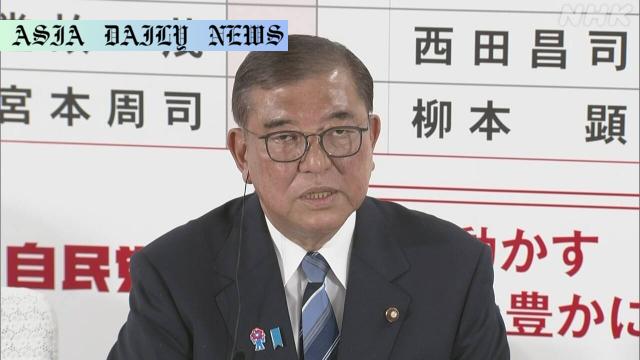Tariff: Japan’s Prime Minister Ishiba vows to address party feedback on the trade agreement with the US, focusing on industry support.
- PM Ishiba exchanges views with party leaders on the US tariff deal.
- He emphasizes supporting domestic industries and steady implementation.
- Ishiba values feedback and pledges an appropriate response.
- Recent election results were not discussed in meetings.

Overview of the Tariff Agreement Discussions
Japan’s Prime Minister Ishiba Shigeru recently held significant discussions with leaders from both ruling and opposition parties concerning the tariff agreement established between Japan and the United States. These discussions, held with representatives from seven political parties, highlight the importance of collaboration in shaping the future of Japan’s economic policies. PM Ishiba explained the intricacies of the trade negotiations, tackled pertinent questions, and welcomed feedback from all sides to ensure that the agreement is implemented without unnecessary hurdles.
During these progressive discussions, a central focus was supporting domestic industries impacted by the tariff deal. By fostering a more robust development strategy for industries reliant on exports, the government aims to mitigate any adverse effects and maximize potential benefits. The prime minister underscored the necessity of a steady and pragmatic approach to correctly implement the agreement, reassuring political leaders of the government’s commitment to sustainable economic progress.
Commitment to Domestic Industry Support
Ishiba emphasized the significance of nurturing domestic industries amid ongoing international trade adjustments. By addressing concerns raised by political leaders, including industry vulnerabilities and export efficiency, Ishiba’s government aspires to instill resilience and competitive strength in Japan’s export-oriented sectors. This approach is anticipated to create a stable economic framework for industries affected by tariff revisions and trade realignments.
Additionally, the government’s support plan includes potential strategies such as incentivizing innovation, enhancing global competitiveness, and alleviating financial constraints faced by Japanese exporters. Such measures are integral to sustaining Japan’s position as a reliable trading partner and a global leader in product innovation.
Feedback Integration and Political Neutrality
One key takeaway from the discussions was Ishiba’s affirmation of the importance of considering feedback provided by political parties. In a move that showcases transparency and willingness for bipartisan collaboration, the prime minister stressed that all comments and recommendations received during these discussions would directly inform governmental actions.
Interestingly, while addressing the media, Ishiba clarified that the talks were centered on economic implications and policy adjustments rather than delving into the political repercussions of the recently disappointing Upper House election results. This neutrality serves to present Ishiba’s administration as focusing on economic stabilization and national priorities rather than political divides.
Conclusion and Broader Implications
Prime Minister Ishiba’s proactive approach to addressing concerns raised by leaders from both sides of the aisle reflects his administration’s dedication to steering Japan towards greater economic stability. Steady implementation of the tariff agreement with the United States, complemented by robust support for domestic industries, is critical in cushioning the national economy amid global uncertainties. Political collaboration, policy clarity, and phased implementation strategies altogether cement the framework for navigating future trade challenges.
As the tariff agreement progresses, Japan’s government will need to adapt to evolving socio-economic trends while upholding commitments to stakeholders, industries, and the general public. This comprehensive approach holds the potential to establish a win-win situation for Japan’s domestic interests and its broader trade relations with the United States.



Commentary
Collaborative Approach for Economic Stability
Prime Minister Ishiba Shigeru’s initiative to involve both ruling and opposition party leaders in discussions regarding the US-Japan tariff agreement reflects a commendable sense of collaboration. In today’s interconnected world, economic policies require inclusive decision-making that addresses diverse perspectives. By engaging multi-party feedback, Ishiba has set a precedent for reframing policy initiatives with an emphasis on collective advancement.
In particular, the acknowledgment of challenges faced by Japan’s domestic industries and the pledge for government support showcases a mindful governance strategy. The emphasis on steady implementation of the agreement demonstrates a commitment to honoring international obligations while also preserving national economic interests. Such forward-thinking leadership is increasingly vital in fostering sustainable development.
Transparency and Neutrality in Governance
One of the standout aspects of this dialogue was Ishiba’s transparency in tackling economic concerns while firmly maintaining a focus on the nation’s interests rather than internal political conflicts. At a time when political discourse often veers towards confrontation, the prime minister’s measured responses highlight an effort to prioritize Japan’s long-term trade strategy and economic resilience. Avoiding discussions about recent election outcomes further underscores Ishiba’s intent to separate governance challenges from political distractions.
This approach not only builds trust among stakeholders but also strengthens Japan’s image on the global platform as a nation driven by its integrity and commitment to equitable policy implementation.
The Road Ahead for Japan’s Economy
Looking ahead, it’s imperative for Japan’s policymakers to maintain open channels for dialogue and seek innovative solutions to address any fallouts from the tariff agreement. The strategic emphasis on supporting export-driven industries could benefit from targeted initiatives, such as capacity-building programs and technological upgrades. Such measures can enable Japanese businesses to remain competitive in today’s dynamic global trade scenario.
While challenges undoubtedly remain, Ishiba’s proactive stance heralds a promising direction for Japan’s trade policies. By bridging political divides and focusing on economic sustainability, the administration has the potential to drive significant progress, benefitting both domestic stakeholders and international allies.